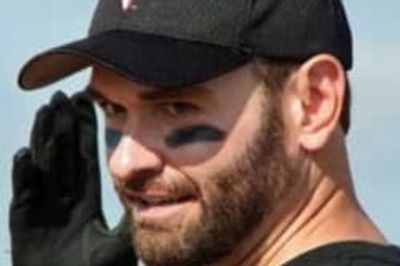When we think of sports, we often think of the competitive aspects, the skills involved and the talent athletes possess. For the GLBT community, sports can also play a community building role while providing a safe haven to be who we are.
As the GLBT community celebrates Pride during the month of June, we asked several of our friends and athletes what participating in gay sports means to them, and why it is important to continue to encourage, foster and grow gay and gay-friendly sports leagues.
“It was really a lot of fun to have the red carpet rolled out by the city of Milwaukee,” Brown says. “The mayor spoke at the opening ceremonies, which were at a lakeside amphitheater with great entertainment. Besides actually playing games, the NAGAAA events were my favorite activities, along with meeting gay ball players from all over the USA and Canada. For a week, the minority were heterosexuals, which is always a nice flip of the coin!
“For me, softball is great exercise, it's a fun way to connect with other athletic-minded GLBT people, and it's a healthy social outlet,” Brown added. “I've already made friendships with quality human beings both here in Nashville and abroad. It was just an overall great experience. I hope that everyone who plays softball can play in at least one World Series.”
For Stan Schklar, playing such positions as “wing” and “hooker” for the Nashville Grizzlies rugby team and competing in the Chicago Gay Games in 2006 have proven to be life-changing experiences.
“I love playing with the Nashville Grizzlies,” Schklar said. “Although I'd always been active and enjoyed working out, I never really considered playing organized sports. Our club has grown tremendously over the past four years and I never could have imagined all the great friends I would make along the way.
“Our club is really close-knit. I think that over time, some gay men may have shied away from joining a sports team, feeling that somehow they weren't good enough or just wouldn't fit in. We have gay and straight players on our team and we're all here to play the game of rugby, and whether gay or straight, I think we all see ourselves as ambassadors, with the message that everyone is welcome.”
“What a beautiful experience,” Gondek said. “It was my first games, and I didn’t know what to expect. When I hit the streets, it was like this overwhelming feeling that the planet had shifted and instead of it being 10 percent gay in population, it was 90 percent gay and 10 percent straight. It was so cool. It wasn’t a circuit party. It was athletics and teams. The spirit of the games is so contagious and so beautiful. To see 12,000 athletes and 50,000 spectators get together for friendly competition, you can’t beat it! There’s nothing like it in the world. The Olympics doesn’t have 12,000 athletes, even in the summer games.
“And the triathlon, you know, you get a medal if you can chase guys in their Speedos,” he added. “Can you think of a better sport than that? If you catch them, you get a medal. I love my sport!”
At 37 years old, Tonya White has been playing softball for 32 years. In August of 2009, White played shortstop for the Nashville Players as they won the D division at the NAGAAA World Series by beating out 39 other teams from around the country.
“My favorite part was winning! Really, it’s so hard to pick a favorite part,” White said. “It was awesome from Opening Ceremonies to Closing Ceremonies. There were more than 4,000 gay people that came to the World Series, so it was just … I loved it all. Everything about it.
“Where else can you just go to the middle of a city and, everywhere you turn, gay people are holding hands and walking around and it being just OK and normal? I would say it’s important, just for that reason, to be who you are and in a city from the mayor on down being accepting, and just, ‘hi y’all’ and, ‘Woo-hoo! The World Series is here!’”
For Little, participating in the Gay Games and Outgames offers something he can’t find in the world of straight sports.
“Sportsmanship is by far the best [at the gay games] vs. everyday sports,” he said. “There are lots of good-spirited people. I wasn’t used to that.”
Felker says his real motivation comes from participating in the gay games.
“It’s so affirming to see people of all ages, from different countries, all there to celebrate that you’re gay or lesbian and participate in sports,” he said. “It really helps to meet people from all over the world, to hear their experiences, how they live. It’s uplifting for me.”
